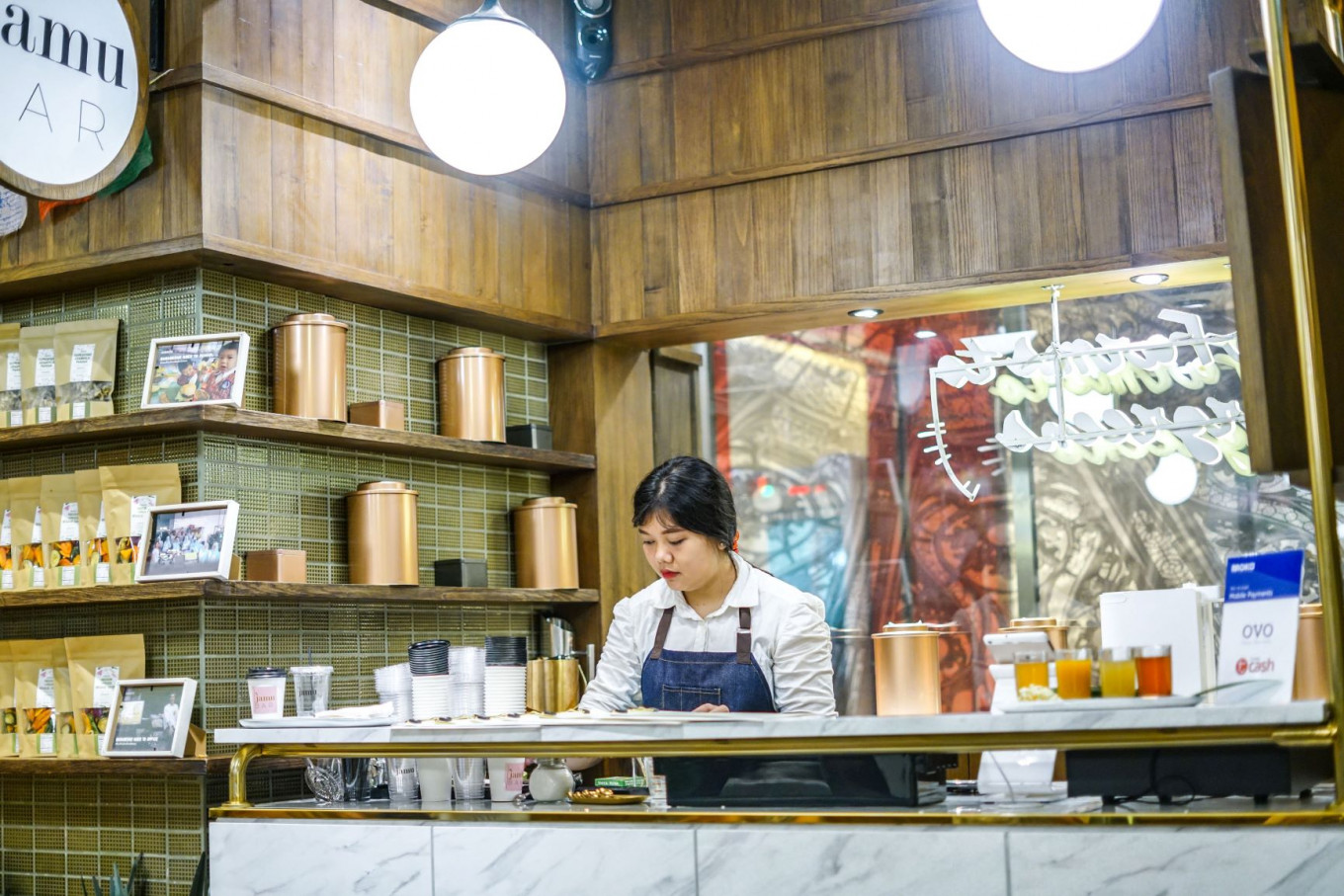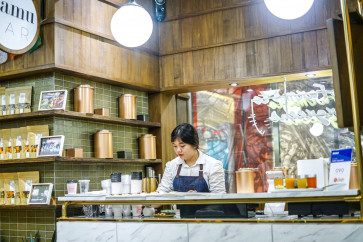Popular Reads
Top Results
Can't find what you're looking for?
View all search resultsPopular Reads
Top Results
Can't find what you're looking for?
View all search resultsFrom ice cream to latte: Traditional ‘jamu’ takes on modern twist
Jamu is a staple of Indonesian culture, but those of the younger generations may find the herbal concoctions bitter and untrendy. A handful of contemporary establishments are out to solve that problem.
Change text size
Gift Premium Articles
to Anyone
I
ndonesia is known around the world for its flavorful coffee, often praised for its full body and long, mellow aftertaste. Coffee drinkers from Tokyo to New York City can find "Java" from Sumatra to Papua.
In contrast, coffee is not a particularly unique beverage in the archipelago.
The distinctly Indonesian drink is jamu. It has a history dating back more than a thousand years, but lacks the global recognition of Indonesian coffee.
The herbal beverage has been coveted for its medicinal qualities since around 1,300 years ago, when the royal family of the Mataram Kingdom drank it.
Made from a variety of natural ingredients to treat specific ailments or as a health tonic, jamu is commonly sold today in glassfuls poured from bottles that are carted in woven baskets on the backs of middle-aged “mbok jamu”, or jamu women.
The women are usually found in rural areas and tell potential customers that their particular jamu will help cure a myriad of aches and pains, or a feeling of general rundown-ness.
The health benefits jamu touts has been the subject of much contention, but it has bigger problems than whether or not it will cure a headache: Jamu is in danger of dying out.



















